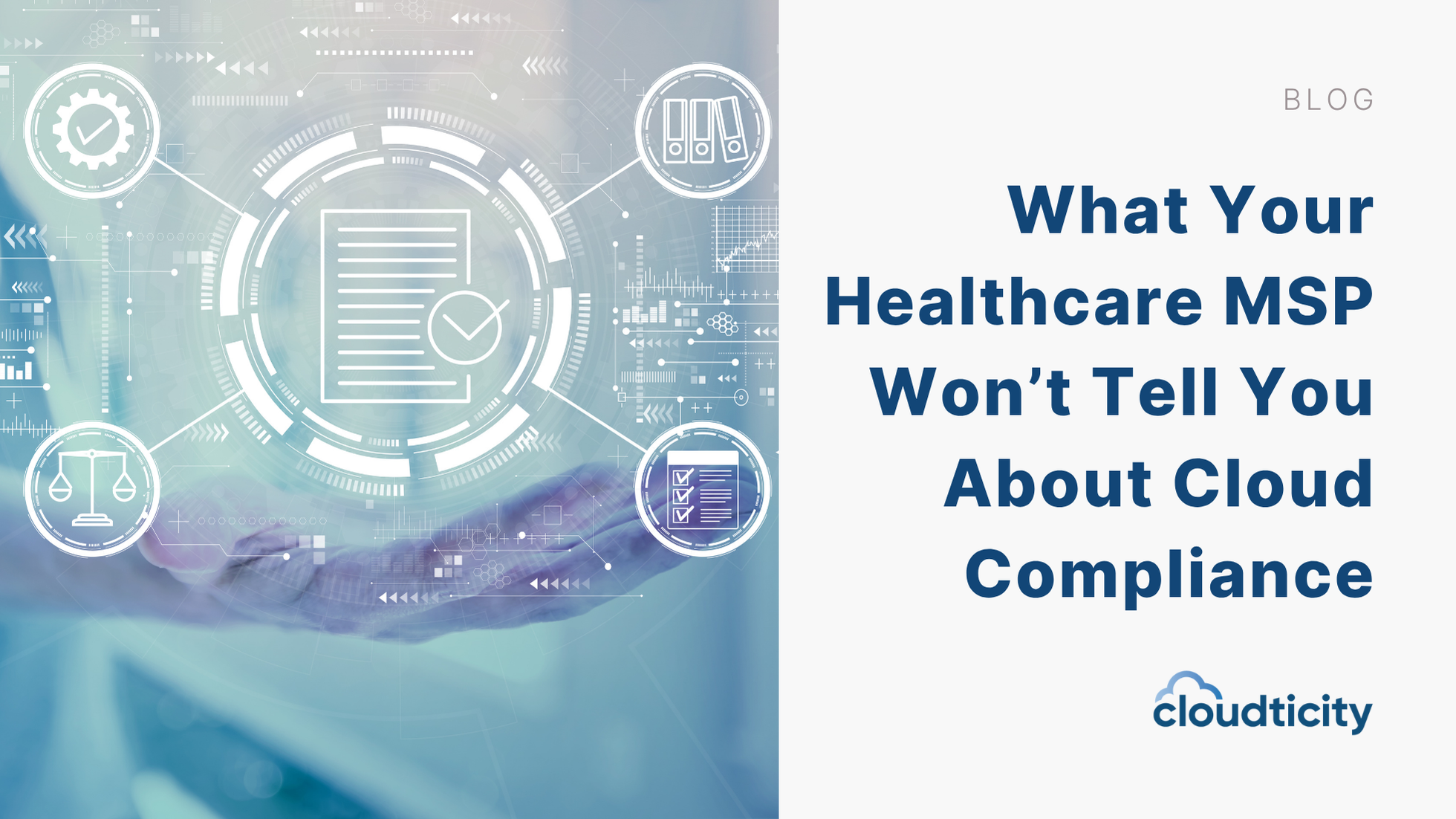When a breach happens in healthcare, the first question is often: “Who’s responsible?”
Whether you’re working with a Managed Service Provider (MSP) to bolster your in-house IT capabilities, manage your cloud, or build infrastructure, it’s natural to assume they’re responsible for keeping everything secure. But in healthcare, that’s especially risky given strict compliance regulations like HIPAA and HITECH, that govern highly sensitive personal data.
So how do you know if your MSP is a partner, or a liability? Here are a few things to consider.
You own the risk. Not your MSP.
If a breach occurs, even due to your MSP’s mistake, your organization bears the liability, regulatory penalties, and reputational fallout. Cloud environments operate under the Shared Responsibility Model, a framework that defines which security tasks are owned by the provider and which by the customer.
If your MSP doesn’t live and breathe the unique challenges that healthcare presents every day, it’s easy for critical compliance controls to slip through the cracks. That’s why it’s essential to review your contracts closely: clarify what systems and data the MSP manages, how breach notification timelines are handled, and how (or if) liability is shared.
Compliance doesn’t equal security.
Meeting HIPAA requirements is important, but it’s not the full picture. Remember that most compliance frameworks are essentially a snapshot in time that tells you whether or not minimum standards were met on a particular day. But for security to be continuous, so does your compliance practice.
Even if your MSP helps you achieve HIPAA compliance any given day, that doesn’t mean your systems are continuously protected from advanced cyberattacks or emerging vulnerabilities. Building a strong security posture requires layered, proactive controls that go beyond the checkbox.
Healthcare inexperience creates risk.
Default security settings may be secure in general. But healthcare isn’t general. Healthcare is one of the most regulated industries in the world. Requirements change frequently and often without much notice.
Healthcare IT environments are complex and highly specialized. They involve EHR integrations, lab system dependencies, and strict regulatory cadence. MSPs unfamiliar with this ecosystem can unintentionally slow down implementations, misinterpret requirements, or misconfigure environments. Generalist MSPs often lack experience in deploying and maintaining HIPAA-compliant cloud infrastructure. Inexperience leads to mistakes, which lead to risk.
A healthcare-specific MSP understands the urgency, the compliance stakes, and the operational realities of clinical IT.
Breach detection requires active monitoring.
HIPAA’s 60-day notification rule starts when a breach is discovered. If your MSP isn’t actively monitoring logs or alerting on suspicious access, the breach could go unnoticed for weeks or months - in fact, there have been cases where a breach went undetected for more than a year!
Many cloud platforms offer logging and alerting tools, but unless they’re properly configured, monitored, and actioned, they don’t offer much protection. Without clear workflow ownership, critical alerts may be missed.
Protected Health Information (PHI) is a different beast.
Protected Health Information (PHI) isn’t just another dataset. It is protected by a set of rules that inform access, disclosure, logging, and sharing of information. Even an unintentional mishandling of information, such as sending a file to the wrong person, needs to be reported and can lead to legal exposure and other consequences.
Treating PHI like general enterprise data is a recipe for compliance disasters.
With Cloudticity, agility is just as important as stability.
Making changes to your cloud environment can be a slow process if you aren’t working with an MSP that moves at the pace of healthcare. With traditional MSPs, you have to go through their management to discuss changes to your system, new apps you might want to use, or other service changes. That’s not sustainable in a clinical setting where speed matters.
Healthcare organizations need more control. Cloudticity customers use infrastructure templates to make changes quickly and confidently, without bottlenecks or delays. That flexibility helps teams stay compliant while keeping up with operational demands.
You deserve an MSP partner that uniquely gets healthcare.
Let’s create, scale and grow your resilient and secure cloud infrastructure together.

